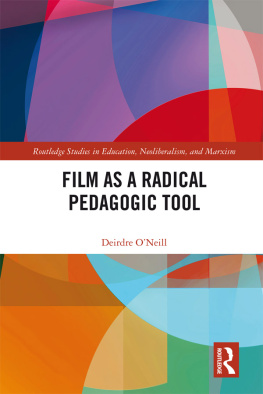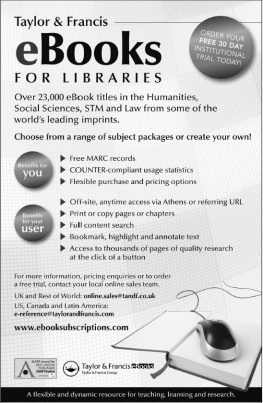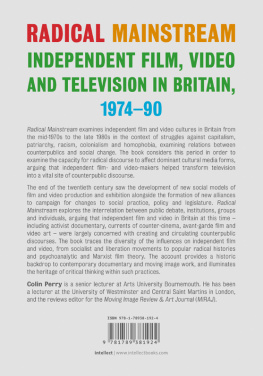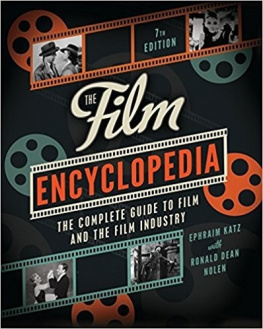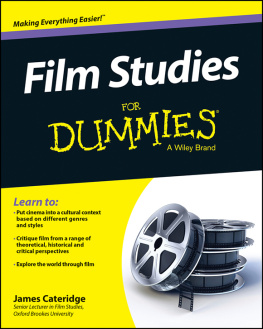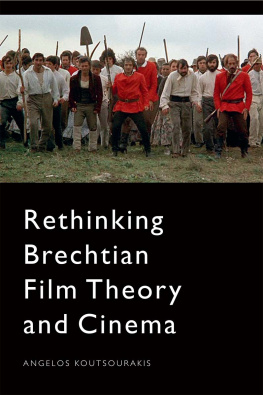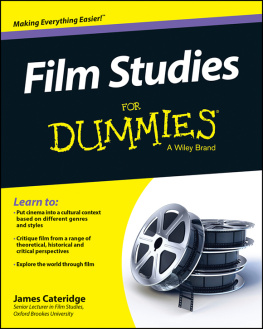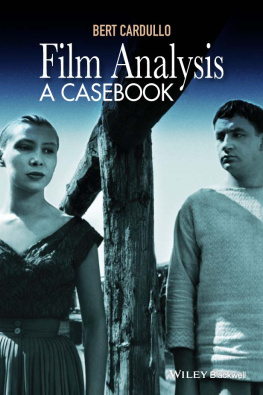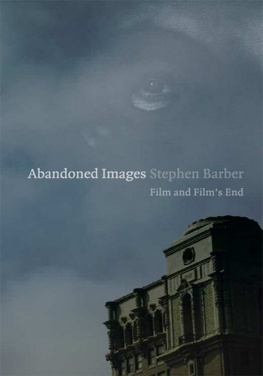Film as a Radical Pedagogic Tool
Emerging from Inside Film, a project that helps prisoners and people on probation make their own films, this book discusses the need for working-class people to represent themselves and challenge mainstream stereotypes and assumptions about them. This project gave prisoners and parolees (see last comment) the technical skills necessary to make their own films and to tell their own stories in order to counter the ways they have been misrepresented. The author demonstrates that film and television are key means by which socioeconomically marginalized groups are classified according to hegemonic norms, as well as the ways such groups can undermine these misrepresentations through their use of the media. As a theoretical reflection on the Inside Film project and on the relationship between filmmaking and education, this book explores what radical pedagogy looks like in action.
Deirdre ONeill is a filmmaker and independent scholar.
Routledge Studies in Education, Neoliberalism, and Marxism
Series editor Dave Hill, Anglia Ruskin University, Chelmsford and Cambridge, England
For a full list of titles in this series, please visit www.routledge.com
7Underprivileged School Children and the Assault on Dignity
Policy Challenges and Resistance
Edited by Julia Hall
8Hegemony and Education under Neoliberalism
Insights from Gramsci
By Peter Mayo
9Female Students and Cultures of Violence in Cities
Edited by Julia Hall
10Neoliberal Education Reform
Gendered Notions in Global and Local Contexts
By Sarah A. Robert
11Curriculum Epistemicide
Towards an Itinerant Curriculum Theory
By Joo M. Paraskeva
12Alternatives to Privatizing Public Education and Curriculum: Festschrift in Honor of Dale D. Johnson
Edited by Daniel Ness and Stephen J. Farenga
13The Neoliberal Agenda and the Student Debt Crisis in U.S. Higher Education: Voices of Students and Faculty
Edited by Nicholas D. Hartlep, Lucille L.T. Eckrich, and Brandon O. Hensley
14Ethnography of a Neoliberal School: Building Cultures of Success
By Garth Stahl
15Film as a Radical Pedagogic Tool
Deirdre ONeill
Film as a Radical Pedagogic Tool
Deirdre ONeill

First published 2018
by Routledge
711 Third Avenue, New York, NY 10017
and by Routledge
2 Park Square, Milton Park, Abingdon, Oxon, OX14 4RN
Routledge is an imprint of the Taylor & Francis Group, an informa business
2018 Taylor & Francis
The right of Deirdre ONeill to be identified as author of this work has been asserted by her in accordance with sections 77 and 78 of the Copyright, Designs and Patents Act 1988.
All rights reserved. No part of this book may be reprinted or reproduced or utilised in any form or by any electronic, mechanical, or other means, now known or hereafter invented, including photocopying and recording, or in any information storage or retrieval system, without permission in writing from the publishers.
Trademark notice: Product or corporate names may be trademarks or registered trademarks, and are used only for identification and explanation without intent to infringe.
Library of Congress Cataloguing-in-Publication Data
A catalog record for this book has been requested
ISBN: 978-1-138-63182-3 (hbk)
ISBN: 978-1-315-20859-6 (ebk)
Typeset in Sabon
by Apex CoVantage, LLC
For mum and dad
Contents
Research has demonstrated that people from manual working-class backgrounds rarely go onto participate in higher education. As a person from such a background who left school at 16 with no qualifications and who did not do a first degree until my mid 30s the process of acknowledging those who have helped me reach this point is far from straightforward and stretches quite a way back.
My motivation to enter higher education was love for my daughter Abigail and the need to create a better life for her than the one I was able to provide as a single parent on a council estate who claimed benefits and cleaned the houses of the middle classes. Without those feelings of maternal love, I am sure I would never have begun the evening A level courses as a preparation for applying to university.
Without the support of my parents who supplied practical and emotional help, the A levels would not have been possible. Both of them were working in low paid manual work but they supported me financially and practically as much as they could even though they were often exhausted by their own jobs.
John Rose who taught me A level sociology at Southwark College of Further Education was a brilliant and inspiring educator whose lectures were fascinating and illuminating, while his concentration on the classed nature of society brought into focus theoretically much of what I was experiencing as a single parent living on a council estate. When he returned essays that I had written he always told me you should go to university. His faith in my ability increased my confidence and fostered my self-belief.
Even though I did well in my A Levels, I did not do my first degree at an elite university but at one of the old polytechnics. I was surprised to discover that even here many of the students were from middle-class backgrounds and did not have to work while doing their degrees; they lived in flats owned by their families or had their rent paid by their parents.
There were some inspiring lecturers who encouraged me and challenged me in equal measures, particularly Bob Barker whose Marxist analysis of film culture is still something I draw on.
The University of Ulster provided the funding that enabled someone who has never had a proper income to be able to take three years to do the research on which this book is based. It was there I met Steve Baker who supervised my PhD, a more inspiring, committed, original thinker I have yet to meet. I will be eternally grateful for his almost magical ability to turn my rants about the unfairness of the lives of the Inside Film students into intelligible (I hope) academic arguments.
The Inside Film students I have worked with over the last 12 years both inside the prison and outside of the prison have been some of the most wonderful people I have ever met. Coming, as they do, from incredibly deprived backgrounds where awful things have happened to them, sometimes unimaginably awful they, who cannot take anything for granted, they have produced some of the most heartfelt and brutally honest films I have ever seen. Although some are still in prison and some I have lost contact with, others have gone on to be my friends and potential colleagues.
My son Jacob has grown up with this work and has always offered his help and support. He has been too young to go into the prisons with me but has always helped when we have worked on the out where he has he has contributed his own filmmaking skills. He has acted in the student films, and built relationships with those who have taken part in the project.
And last but not least, my husband and partner in all things Mike Wayne. The genesis of Inside Film grew out of discussions in our kitchen. He has constantly encouraged, supported, and challenged me in relation to my political beliefs and my academic work; his political commitment and incredible knowledge of oppositional film practices has anchored and inspired me. He has welcomed the

